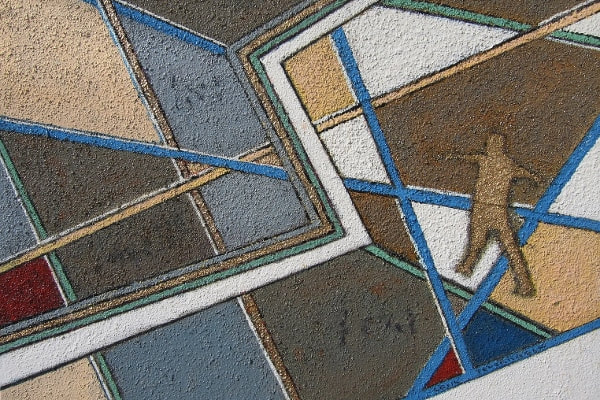I have applied a number of elements resulting from such talks to my work in the past, but this one strikes me as particularly important, as it relates to an element of clutter accumulation that I never could bend my mind around, and that always felt like a bit of an odd concept in the realms of decluttering. I keep asking myself, why do people keep things ‘just in case’. I always suspected that it was a result of wartime scarcity and fear of not having something important at arms’ reach, that has been passed on to the following generations. The thought that you’ll miss something if you give it away or it breaks was a hard one for those coming out of wartime, when resources were scarce and everything was reused to the point of complete destruction. However, in this modern world where things are built to break, where everything is always available online, where it has become difficult if not impossible to have anything repaired at all, how does that idea translate? It does not, really, unless it is a small underlying current of anxiety. The other reasons for keeping things forever – hoarding, perceived sentimental attachment, poverty, etc. – can be present, of course, but I have come to suspect that those don’t feel like the ultimate reason why we are having such a hard time to let go of the most ridiculous of items in our lives. I have come to believe that the reason is deeper: we keep things ‘just in case’ because we are afraid of something that may not have anything to do with the items themselves. The thought to consider is that ‘just in case’ is a construct that keeps us from letting go, and may simply be based on deeply engrained fears. Those fears could be any and all of the issues mentioned above: some people believe they have sentimental reasons to keep a lot of things, but when asked about them are hard pressed to come up with times, places, people or situations that relate in a unique way with any of these items. Others claim that the broken item will be repaired and then can return to its original use. Sadly, that broken chair has been rotting in the shed for 10 years and another chair has long ago taken its place… so why hang on to the old one? Whichever reason I bring up in conversation with a client has an excellent chance of falling through. And all of those reasons come from a place of fear: fear of having to spend money on something you think you already have, fear of losing a connection (to the past, to a person, to a memory), fear of feeling stupid or the fear of making a mistake. A lot of fears are associated with letting go of things, and many – if not most – of those fears are totally irrational. When prompted, the majority of my clients have replied with something along the lines of ‘it’s silly really, but I just have to keep this item’ and then became incapable of letting this thing go at all. Bringing up that fear in conversation only reinforces it, it seems. The place of fear is strong and important, and I can only assume that it is rooted in an old behavioural setting we have inherited from our long-gone ancestors. There is more going on here than just nurture: anything that has moved our grandparents during the war may have been told to us in stories, but lack of personal experience should really have weeded these thoughts out of us by now. I realise, of course, that not all of us living today live a life of luxury, but I may suggest that most of us have the basics at our disposal. Very few people in the Western world are completely without any means, but I acknowledge that these people exist (and sadly there are increasingly more of them). However, those are not the people in a position to consider decluttering in the first place: they live a certain minimalist life already. So in a way the ‘place of fear’ in the realm of decluttering is a bit of a luxury problem, but that doesn’t make it any less pertinent when trying to figure out why a certain person has trouble with letting go of something. I believe that one of the first steps on this subject is a simple one: staying aware that fear is a powerful factor in decluttering, and keeping that in mind whenever sessions are in progress and the going gets tough. Maybe take a step back and think about fears associated with losing this particular item. That might just open a new avenue of consideration and ultimately help making the right decision on this particular item – and others like it. If you have enjoyed reading this, you may find these other articles interesting: Comments are closed.
|
Ask the ClutterMeisterIdeas to help clear away the mess in your homes and in your minds.
Feel free to share any of my posts, but please put in a backlink to the original blog post. Thank you. The author
Hi, my name is Tilo Flache. My mission: help clients declutter mind and space.
This blog contains pointers for your journey towards a happier living experience. Archives
November 2023
|




 RSS Feed
RSS Feed




